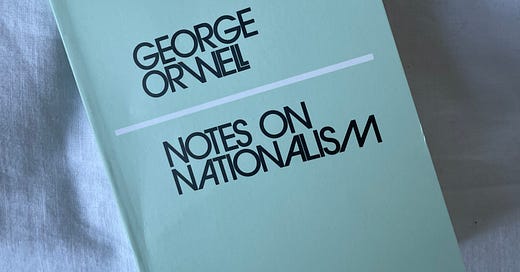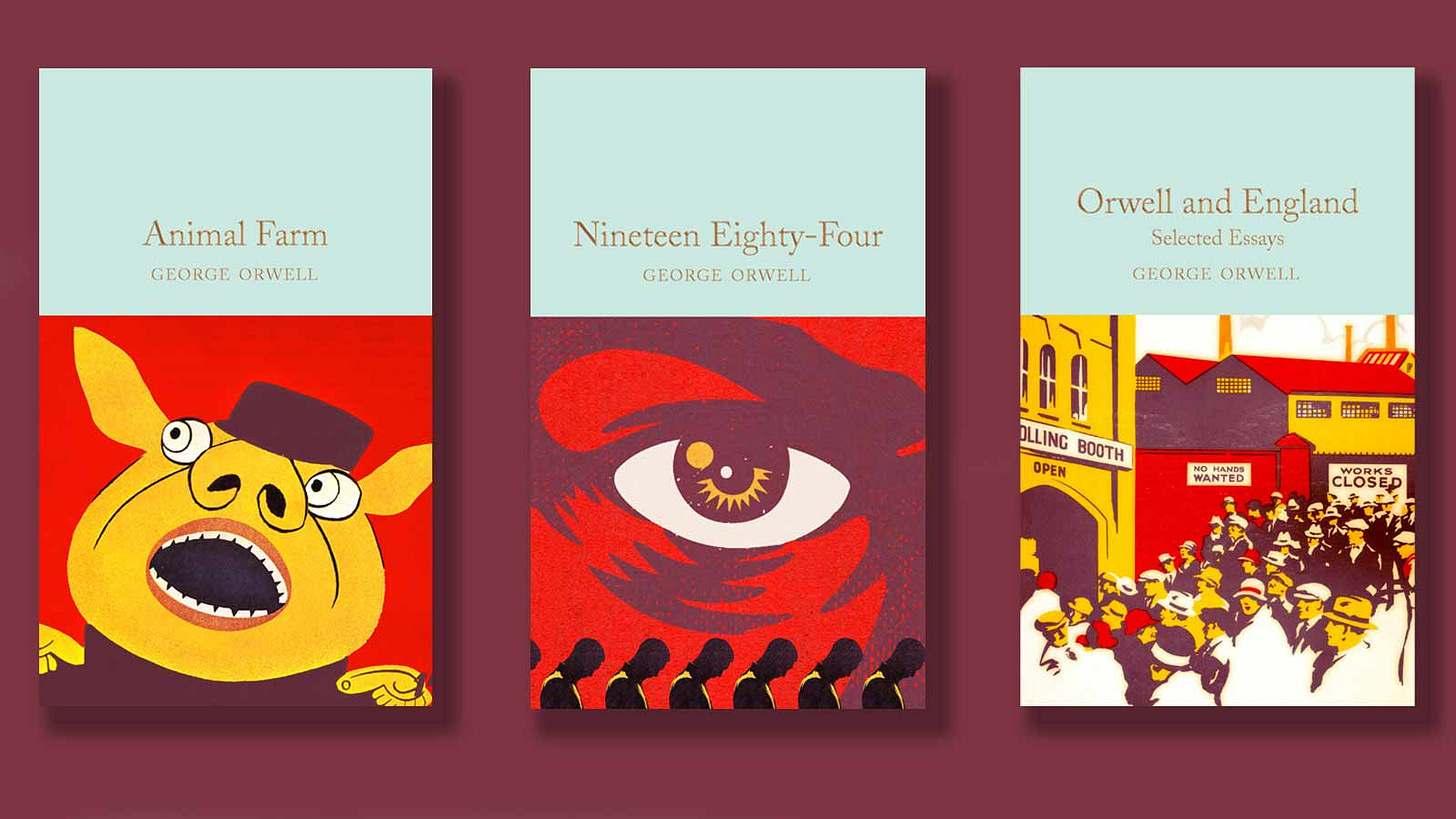11. Notes on Nationalism | George Orwell
Penguin Modern (number 07), buy this wonderful book here.
Friends,
Small books are my love language this year! Mostly as my attention span is SHOT from the pandemic and I’m trying to get back into reading so even though this looks like cheating — it works!
George is extremely depressing to read, but incredibly clairvoyant given that he’s writing these books in 1945 but he may as well have been writing the in The Brexit Years.
I’ve dog-eared most of the book tbh.
Some key points:
“By ‘nationalism’ I mean first of all the habit of assuming that human being can be classified like insects and that whole blocks of millions or tens of millions of people can be confidently labelled ‘good’ or ‘bad. But secondly - and this is much more important - I mean the habit of identifying oneself with a single nation or other unit.”
“Nationalism is not to be confused with patriotism. Nationalism is inseparable from the desire for power.”
“In England, if one simply considers the number of people involved, it is probable that the dominant for of nationalism is old-fashioned British jingoism.”
“All nationalists have the power of not seeing resemblances between similar sets of facts. A British Tory will defend self-determination in Europe and oppose it in India with no feeling of inconsistency.”
“The nationalist does not go on the principle of simply ganging up with the strongest side. On the contrary, having picked his side, he persuades himself that it is the strongest, and is able to stick to his belief even when the facts are overwhelmingly against him. Nationalism is power-hunger tempered by self-deception. Every nationalist is capable of the most flagrant dishonesty, but he is also—since he is conscious of serving something bigger than himself—unshakeably certain of being in the right.”
and lastly:
(🤭)
“One quite commonly finds that great national leaders, or the founders of nationalist movements, do not even belong to the country they have glorified. Sometimes they are outright foreigners, or more often they come from peripheral areas where nationality is doubtful. Examples are Stalin, Hitler, Napoleon, de Valera, Disraeli, Poincaré, Beaverbrook.”
Some more books by George here.





